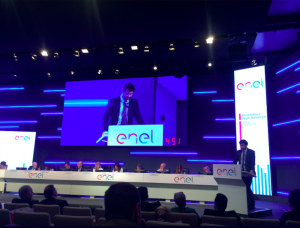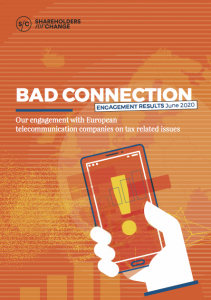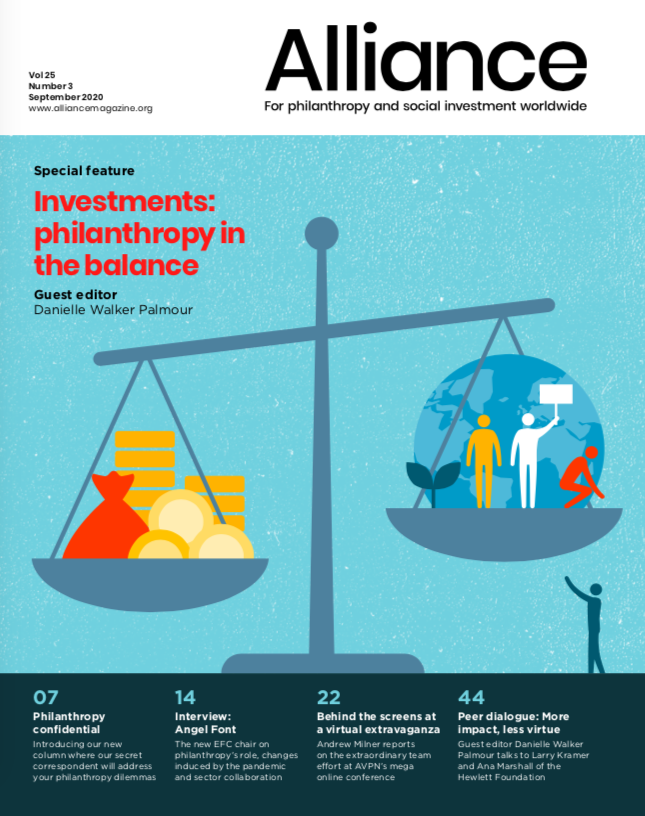European organisations are joining forces in critical shareholding but there’s a long road ahead
This story begins in Italy in the 1990s, when a series of pacifist, environmental, trade union and fair trade organisations created the first, and so far only, Italian grassroots bank, Banca Etica. Its purpose was and continues to be to finance non-profit organisations and social cooperatives but also private companies that develop projects in the social and environmental field.
In 2003 the bank, which today has 44,000 members and deposits of €1.8 billion, created a foundation, financed from its profits, with the aim of promoting the culture of ethical finance and a responsible use of money, the Fondazione Finanza Etica (FFE). It has no assets to invest but uses the resources made available by Banca Etica to finance cultural projects and research mainly related to financial education and responsible consumption.
Pollution, corruption and human rights violations become worthy of discussion at annual general meetings not so much because they are unfair or unethical practices, but because they can pose risks to the financial soundness of corporations.
One of these projects is called ‘critical shareholding’ and aims to engage large listed companies on environmental, social and governance issues. FFE buys a symbolic number of shares of corporations that are already the subject of civil society campaigns, and helps organisations such as Greenpeace, Amnesty International, and Re:Common to bring their requests to shareholders’ meetings, with the opportunity to ask direct questions to company CEOs and presidents.
Over the past 13 years, FFE has participated in about 50 meetings of seven companies, mainly in Italy, asking questions on issues such as energy transition, corruption of governments in poor countries, displacement of Indigenous peoples to build large dams, water privatisation, arms exports to countries that violate human rights and the failure to pay a living wage to textile workers in South East Asia.

Meggiolaro speaks at the 2019 AGM of Italian multinational energy company Enel on behalf of SfC.
Critical shareholding does not replace other equally valid actions, such as critical consumption, boycotts, petitions and demonstrations, but is a complementary strategy. It makes use of rights prescribed in law, such as the right to obtain answers from companies and the duty of informed participation in a company’s life. Shareholder engagement also involves a change of approach: in order to be considered at shareholders’ meetings the political themes of campaigns need to be translated into financial ones. Pollution, corruption and human rights violations become worthy of discussion at annual general meetings not so much because they are unfair or unethical practices, but because they can pose risks to the financial soundness of corporations, in the event of sanctions, lawsuits and trials, regulatory changes, or simply because they can negatively affect a company’s reputation and thus consumer choices.
Thanks to SfC and the collaboration with experts from the UK based Tax Justice Network, the issue of tax justice is gradually becoming one of the priorities of the foundations and asset managers.
In 2017, inspired by the experience of the US coalition Interfaith Center on Corporate Responsibility (ICCR), FFE joined forces with other institutional investors based in Germany, Spain, France, Italy, Austria, the UK and Switzerland to create the Shareholders for Change (SfC) European network for shareholder engagement. Members include asset managers such as the French Ecofi Investissements, Meeschaert Asset Management and the Italian Etica Sgr, foundations such as the Swiss Ethos Foundation and the British Friends Provident Foundation, as well as the German Catholic Bank für Kirche und Caritas. The aim of the network is to share experiences of shareholder engagement at European level and jointly engage with both strong and weak performers in terms of environmental, social and corporate governance (ESG) criteria.

Results of SfC’s engagement with telecommunications companies on tax issues, published in June 2020.
The main issues for engagement are climate and environment, human and workers’ rights and tax justice. SfC has focused on tax justice, a real ‘orphan issue’, from the beginning, with the report Bad Connection which highlights the lack of fiscal transparency at European telecommunications giants and, in part, the implementation of aggressive tax strategies. These are legal or barely legal practices, which present a problem of an ethical nature associated with the risk of sanctions by tax authorities: the diversion of resources from the welfare of many countries by shifting profits to low-tax jurisdictions. The report was followed by exchanges of letters, emails and conference calls with the companies which, in general, proved to be very cooperative, even if they made few concessions on transparency.
Thanks to SfC and the collaboration with experts from the UK based Tax Justice Network, the issue of tax justice is gradually becoming one of the priorities of the foundations and asset managers who are members of the network. In 2019, 15 per cent of the SfC network’s 76 joint engagement initiatives were dedicated to fiscal justice, ranking third after climate change (35 per cent) and human rights (31 per cent). This is a great achievement for an issue that is usually marginal in investor engagement strategies.
On the other hand, it is still difficult to refocus the spotlight to another ‘orphan issue’, at least in Europe: the controversial sales and marketing practices of large pharmaceutical companies. This is an issue on which ICCR itself has always insisted but is still marginal for SfC and, in general, European institutional investors.
We think that the time has come to find a family for this orphan issue as well, possibly with new research which we hope to launch at Shareholders for Change in the coming years.
Mauro Meggiolaro is manager of Shareholder Engagement at Fondazione Finanza Etica and coordinator of the Shareholders for Change Secretariat.
Email: meggiolaro.fondazione@bancaetica.org
Twitter: @meggio_m







Comments (0)